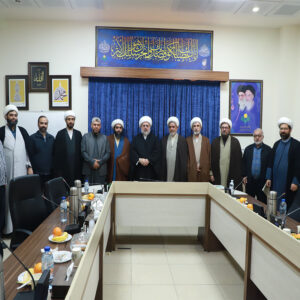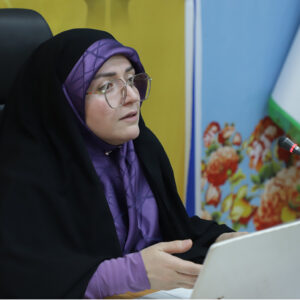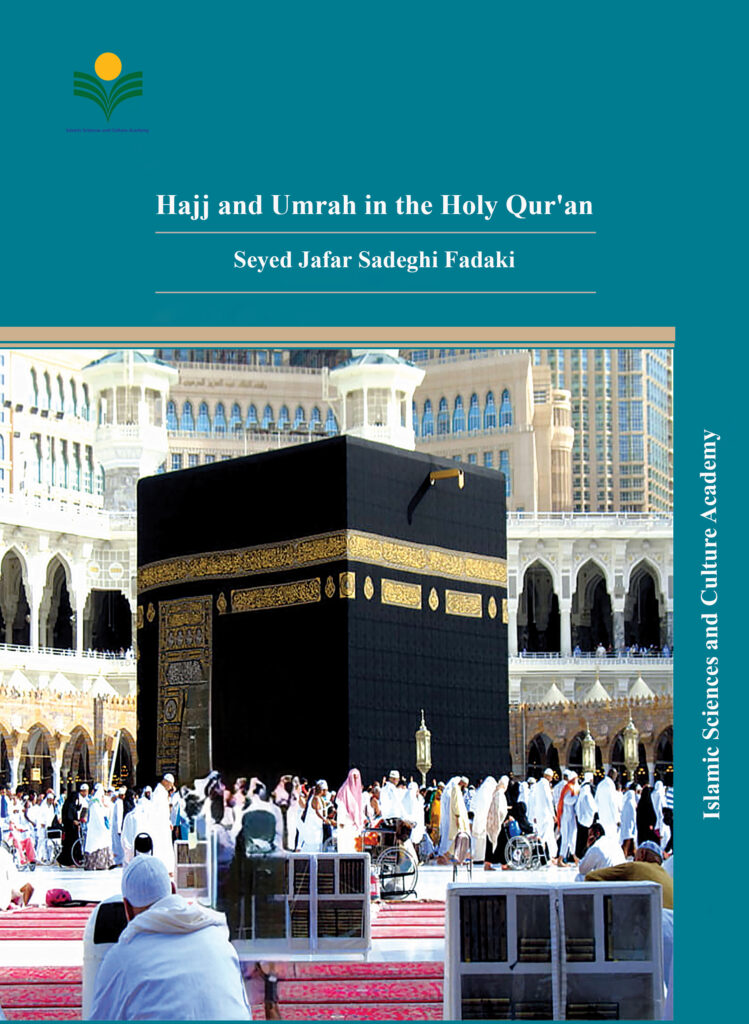Hajj and Umrah in the Holy Qur’an
Authored by: Seyed Jafar Sadeghi Fadaki[1]
Keywords: The Holy Qur’an, Hajj, Umrah, Rulings, Rituals
Statement of the Problem:
Hajj and Umrah are among Wajib (obligatory) and Mustahabb (recommended) rituals and worships of Muslims. In case of having financial ability, Hajj is Wajib only once in a lifetime for the obligated person, and repeating it is Mustahabb, and Umrah, according to most jurists, is Mustahabb and can be performed in all months of the year. In this research, the two mentioned topics are analyzed and examined in terms of their importance and place in the Holy Qur’an and how to fulfill them from the perspective of the revealed teachings.
Primary and Secondary Questions:
Primary Question:
The primary question of this research asks about Hajj and Umrah in the Holy Qur’an and their place, rulings and conditions.
Secondary Questions:
What are the types and components of Hajj and Umrah? When does the history of Hajj and Umrah go back, and did these two acts of worship exist among the followers of the previous Sharias (Islam’s Legal System) or not? Why has Allah legislated these two acts of worship for the followers of divine Sharias? What are the most important rulings and rituals of Hajj and Umrah from the perspective of the Holy Quran?
Objectives
Every year, millions of pilgrims from Iran and various Islamic countries go on Hajj and Umrah. Performing its rituals correctly requires knowing Hajj and Umrah and how to perform them according to divine teachings. The main purpose of writing this book is to familiarize the pilgrims with the truth and the important place of Hajj and Umrah in the teachings of revelation, the philosophy of legalizing these rituals and how to perform them from the perspective of the Holy Qur’an so that they can return to their homelands with an acceptable and grateful pilgrimage from this spiritual journey.
Method
The focus of explaining the topic of Hajj and Umrah in this research is the verses of the Holy Qur’an. However, for the complete explanation of the mentioned verses and the comprehensiveness of the discussion, in addition to referring to the Holy Qur’an, it has been referred to dictionaries and thesauruses of jurisprudence, Shia and Sunni interpretations, and narrative sources and jurisprudence books of Fariqain (Sunni and Shia denominations). This research has been conducted by collecting data from the aforementioned written sources as well as computer systems and scientific software with descriptive-analytical data processing method.
Structure
This book has been authored in two chapters. The first chapter is dedicated to Hajj, and after the conceptualization of the subject and the description of the types of Hajj, some important topics of this worship from the perspective of the Holy Qur’an and interpretative narratives, including the beginning and background of Hajj in the past Sharias, the importance of Hajj, the wisdom and goals of Hajj, actions and the components of Hajj and its most important rulings and rituals have been dealt with. The second chapter is devoted to Umrah or Hajj Asghar and in this chapter, after conceptualizing the subject and explaining the different types of Umrah, some important topics of this worship from the perspective of the verses of the Holy Qur’an and narratives, such as the background of Umrah in previous Sharias, Umrah in Islam, the importance and place of Umrah, and the most important jurisprudential rulings and rituals of this worship are considered.
Novelty
Many books and articles have been written on Hajj and Umrah. However, the novelty of this research compared to the previous works is that on the one hand, the focus of the discussion is the verses of the Holy Qur’an, and most of the topics are known and analyzed based on them. On the other hand, not only the view of the jurists and commentators of the Imamiya has been used in explaining these verses, but the exegetical, jurisprudential and narrative sources of the Sunnis have also been used in explaining the mentioned verses. Therefore, in addition to pilgrims of the Imamiya denomination, followers of other Islamic denominations can also benefit from this research.
Results
According to the present research, the findings suggest that Hajj and Umrah were not only allocated to Islamic Sharia. Before the creation of human, these rituals were performed by divine angels, and after the creation of human, Hazrat Adam was the first person to perform Hajj and Umrah, and after him, various previous Sharias recommended and followed them, including the Sharias of Noah, Abraham, Moses, and Jesus. In addition, based on Qur’anic teachings and interpretative narratives, the aforementioned rituals have been legislated to fulfill various goals and benefits including strengthening religion, repentance and forgiveness of sins, self-improvement, getting piety, getting material and spiritual benefits, connecting with divine leadership, avoiding and staying away from devils and enemies of God, getting to know Muslims with each other and knowing each other’s problems and abilities. The most important common rulings and rituals between Hajj and Umrah based on the Qur’anic verses are consist of obligation of Hajj and Umrah with special conditions, obligation to complete Hajj and Umrah after starting, sincerity in Hajj and Umrah, obligation to learn the rulings of Hajj and Umrah for pilgrims to the house of God, permissibility of business in Hajj and Umrah, recommendation to repeat Hajj and Umrah, asking for forgiveness and praying in Hajj and Umrah, patience and tolerance of hardships during Hajj and Umrah.
[1]. Assistant Professor, Research Center for Qur’anic Sciences and Culture, Islamic Sciences and Culture Academy (j.sadeqi@isca.ac.ir).







